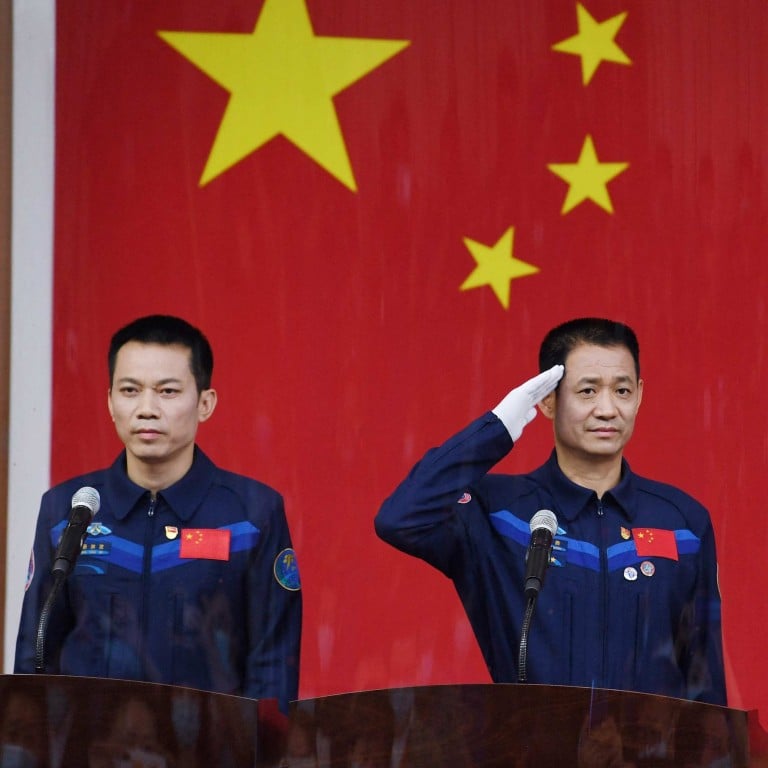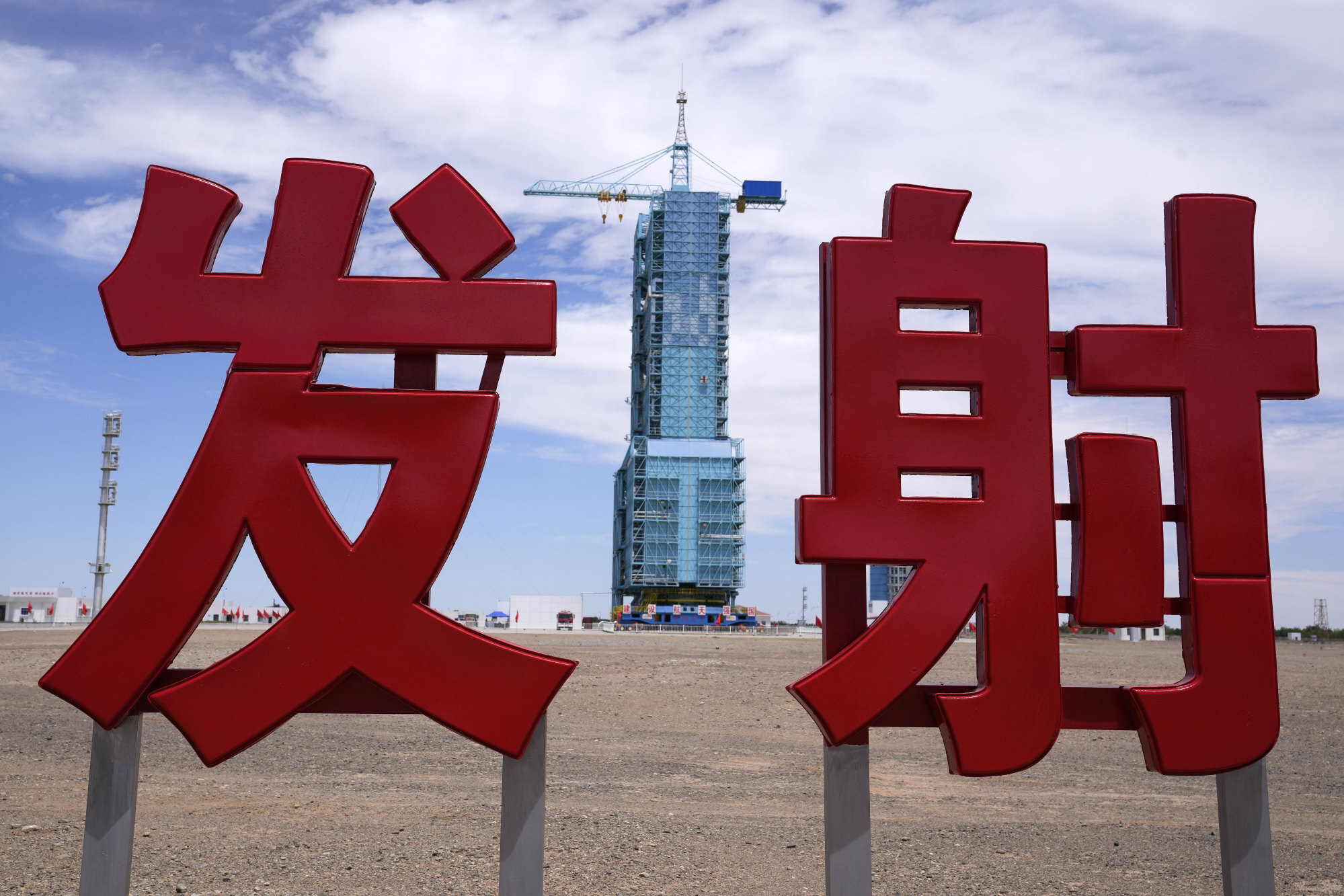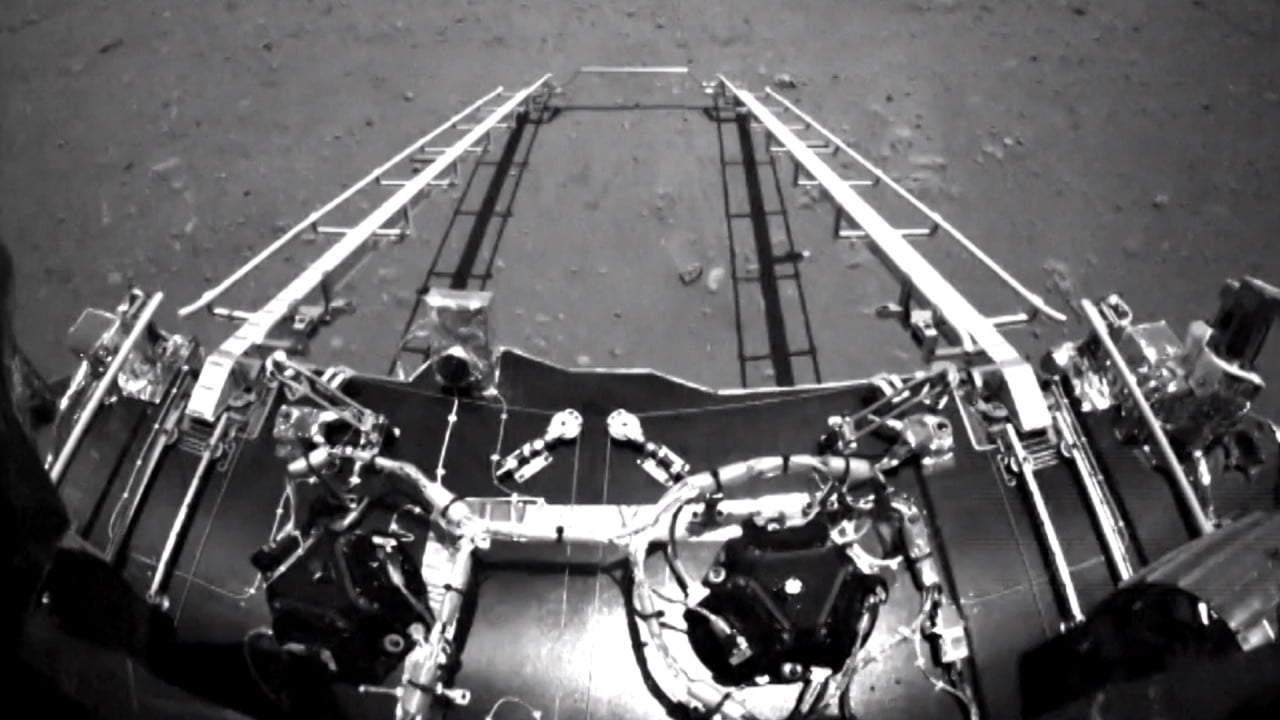
Meet the astronauts set to blast off on first Chinese space station mission
- All three are veterans who came from humble beginnings in rural China
- They’ll spend three months on the Tianhe doing tests and maintenance
The men are expected travel into orbit on Thursday morning aboard the Shenzhou-12 spacecraft and will live on the Tianhe – the first module of the Tiangong space station – where they will conduct tests, maintenance and spacewalks.
“This mission will be the first manned flight as part of China space station’s construction. I’m very fortunate to kick off the first leg of the space station’s construction and I have many hopes,” Nie told reporters on Wednesday. “China’s space exploration development has crystallised the Chinese people’s thousand-year dream of flying to the sky, and added a heroic chapter to the 100-year history of struggle of the party.”
Joining Nie for China’s first manned space flight in five years are Liu Boming, an experienced astronaut who has travelled to space once before, and Tang Hongbo, who will be on his first space mission.

Nie comes from a small village in the central province of Hubei. One of six children, his parents struggled to pay for his education – he once brought a rabbit to school to pay for his fees, according to a 2018 China National Radio report.
He joined the air force in 1983 and after a decorated career, including surviving a fighter jet crash in 1989, he applied to China’s space programme and was chosen as one of its first astronauts in 1998, Nie said.
“Manned space flight is a great mission, only big countries such as the US, Russia were able to do it – now China has decided to get into it too,” Nie said. “It is my life’s fortune to be able to take part.”
China’s space race gathers pace: next stop, Jupiter?
Fellow crew member Liu, 54, has a similar story. He was also one of six children, raised in an impoverished farming household in Heilongjiang, in the northeast. He had to trek almost 20km (12.4 miles) to and from high school every day so his family did not have to pay boarding fees, according to a 2018 report on state broadcaster CCTV.
Liu was part of the Shenzhou-7 mission in 2008, when he was praised for his response to a fire alarm going off just as he and Zhai Zhigang were about to go on a spacewalk – the main goal for that mission.
A fire or spark could have caused an explosion, so Liu gave up on the spacewalk to check the fire alarm, the report said. He asked fellow astronaut Jing Haipeng to eject the orbital module that he and Zhai were on if an accident did happen. It turned out to be a false alarm and Zhai ended up doing China’s first spacewalk alone.
“If we completed the spacewalk then that would mean the mission was successful,” Liu told the broadcaster. “As for whether we could return or not – an individual’s life was light as a feather in the face of our country and the pride of the people.”
The youngest astronaut on the Tianhe mission is 45-year-old Tang, who was chosen for China’s second class of astronauts in 2010 after 15 years in the air force. He also comes from a farming family, in a small city in Hunan province, central China.
“Being on my first mission, it’s hard not to feel pressure,” Tang told reporters. “But I believe pressure can be motivation and I’m confident of the mission’s success.”
China posts new Mars photos from rover Zhu Rong, declares mission a success
Quentin Parker, a professor of astronomy and astrophysics at the University of Hong Kong, said while it may sound “a little bit strange” to choose older astronauts for the mission they would have been carefully selected based on “having the right experience, knowledge and a certain level of fitness”.
“Things have moved on a lot from the very early days of space flight, when you had to be really super fit … now age is no real barrier. Now 60 is a new 30, we now are living much longer, much healthier, generally speaking,” Parker said.
“If you’re an astronaut taken care of by the various space agencies that monitor you, there’s no reason why 50-, 60- or even 70-year-old people can’t travel in space. And John Glenn is a perfect example of that back in 1998,” he said, referring to the American astronaut who was the oldest person to travel in space at the age of 77.
Additional reporting by William Zheng


